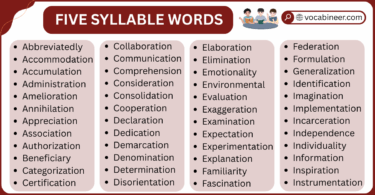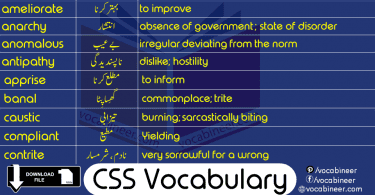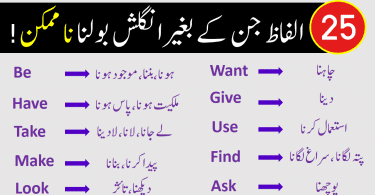Many students find homophones confusing because they sound alike but carry different spellings. Picking the right one is important to keep the sentence clear. This post collects more than 300 examples you can learn from quickly. Here you’ll see homophones in English explained with examples. This helps when reading, doing classwork, or even casual conversations.
In This Page
What Are Homophones in English?
Homophones are words that sound the same when spoken but have different spellings and meanings. They can be tricky because even though they sound alike, you can’t use them in the same way. Writers have to be careful to choose the right word depending on the meaning.
Examples of Homophones
- Two / Too / To
- I have two pencils.
- I want ice cream too.
- We are going to the park.
- There / Their / They’re
- The ball is over there.
- That is their house.
- They’re going to school.
- Flour / Flower
- She used flour to bake bread.
- The flower is very pretty.
- See / Sea
- I can see the stars tonight.
- We swam in the sea during summer.
- One / Won
- I ate one cookie.
- She won the race.
Lists of Common Homophones for Learners
- To / Too / Two
- Their / There / They’re
- Your / You’re
- Its / It’s
- One / Won
- Here / Hear
- Know / No
- See / Sea
- Write / Right
- Flour / Flower
- Eight / Ate
- Bear / Bare
- Break / Brake
- Meet / Meat
- Hole / Whole
- Peace / Piece
- Sun / Son
- Allowed / Aloud
- Hour / Our
- Blue / Blew
- Weak / Week
- Mail / Male
- Plane / Plain
- Tail / Tale
- Pair / Pear
- Cell / Sell
- Sight / Site
- Knight / Night
- Capital / Capitol
- Weather / Whether
- Buy / By / Bye
- Steal / Steel
- Fair / Fare
- Stair / Stare
- Die / Dye
- Deer / Dear
- Made / Maid
- Idle / Idol
- Eye / I
- Road / Rode
- So / Sew
- Plain / Plane
- Wear / Where
- Way / Weigh
- Knew / New
- Some / Sum
- Right / Rite / Write
- Meat / Meet
- Soul / Sole
- Morning / Mourning

Most Common Homophones in Use
One and Won
- One – the number 1 (I ate one cookie).
- Won – past tense of win (She won the race).
Eight and Ate
- Eight – the number 8 (I have eight pencils).
- Ate – past tense of eat (I ate lunch).
Bear and Bare
- Bear – an animal, or to carry something (The bear is huge / I can’t bear the pain).
- Bare – uncovered (He walked on bare feet).
Flour and Flower
- Flour – used in baking (She used flour for the cake).
- Flower – a plant blossom (The flower is beautiful).
Write and Right
- Write – to put words on paper (I will write a letter).
- Right – correct, or a direction (You are right / Turn right).
Sea and See
- Sea – large body of salt water (We swam in the sea).
- See – to look at something (I can see the stars).
Buy, By, and Bye
- Buy – to purchase (I will buy a toy).
- By – shows closeness (She sat by the window).
- Bye – short for goodbye (He waved bye to his friends).
Blue and Blew
- Blue – a color (The sky is blue).
- Blew – past tense of blow (The wind blew hard).
Examples of Homophones in Sentences
- I ate eight grapes.
- She won one medal.
- The bear is bare.
- Please write on the right side.
- I can see the sea.
- That is their house over there.
- They’re very happy.
- I want ice cream too.
- He has two cats.
- The flower grew near the flour.
- The knight rode at night.
- The blue ball blew away.
- The car hit the brake, not the break.
- We will meet to eat meat.
- She read the whole book with a big hole in the cover.
- He wore new pair of shoes to eat a pear.
- The sun is bright, just like my son.
- We waited for our turn for one hour.
- She told a tale about a fox with a long tail.
- I will mail the letter to the tall male clerk.
Top 20 Confusing Homophones
- Eight / Ate
- Bear / Bare
- Flour / Flower
- Write / Right
- See / Sea
- Know / No
- Buy / By / Bye
- Break / Brake
- Meet / Meat
- Hole / Whole
- Peace / Piece
- Sun / Son
- Here / Hear
- Allowed / Aloud
- Hour / Our
- Blue / Blew
- Weak / Week
- Mail / Male
- Plane / Plain
- Tail / Tale
100 Examples of Homophones for Beginners
- To / Too / Two
- Their / There / They’re
- Your / You’re
- Its / It’s
- One / Won
- Here / Hear
- Know / No
- See / Sea
- Write / Right
- Flour / Flower
- Eight / Ate
- Bear / Bare
- Break / Brake
- Meet / Meat
- Hole / Whole
- Peace / Piece
- Sun / Son
- Allowed / Aloud
- Hour / Our
- Blue / Blew
- Weak / Week
- Mail / Male
- Plane / Plain
- Tail / Tale
- Pair / Pear
- Cell / Sell
- Sight / Site
- Knight / Night
- Capital / Capitol
- Weather / Whether
- Buy / By / Bye
- Steal / Steel
- Fair / Fare
- Stair / Stare
- Die / Dye
- Deer / Dear
- Made / Maid
- Idle / Idol
- Eye / I
- Road / Rode
- So / Sew
- Wear / Where
- Way / Weigh
- Knew / New
- Some / Sum
- Right / Rite / Write
- Meat / Meet
- Soul / Sole
- Morning / Mourning
- Plain / Plane
- Weak / Week
- Him / Hymn
- Pale / Pail
- Past / Passed
- Hole / Whole
- Flew / Flu / Flue
- Scent / Sent / Cent
- Principal / Principle
- Higher / Hire
- Weather / Whether
- Won / One
- Scene / Seen
- Stake / Steak
- Wait / Weight
- Serial / Cereal
- Desert / Dessert
- Complement / Compliment
- Affect / Effect
- Close / Clothes
- Pore / Pour
- Role / Roll
- Root / Route
- Sell / Cell
- Stare / Stair
- Band / Banned
- Male / Mail
- Peace / Piece
- Plain / Plane
- Toe / Tow
- Knot / Not
- Miner / Minor
- Allowed / Aloud
- Council / Counsel
- Waist / Waste
- War / Wore
- Right / Write
- Dear / Deer
- Know / No
- Won / One
- Here / Hear
- Sight / Site
- Steel / Steal
- Tail / Tale
- Knight / Night
- Buy / By / Bye

Homophone Mistakes in English Writing
Homophones often cause problems in writing because they sound the same but mean different things. Using the wrong word can make sentences confusing or even change the meaning completely. Here are some of the most common homophone mistakes learners (and even native speakers) make:
- Mixing up your and you’re
- Wrong: Is this you’re book?
- Correct: Is this your book?
- Confusing its and it’s
- Wrong: The dog wagged it’s tail.
- Correct: The dog wagged its tail.
- Misusing there, their, and they’re
- Wrong: Their going to the park.
- Correct: They’re going to the park.
- Using to instead of too
- Wrong: I like pizza to.
- Correct: I like pizza too.
- Writing no instead of know
- Wrong: I no the answer.
- Correct: I know the answer.
How to Learn and Practice Homophones Effectively
- Use Flashcards – Write the word on one side and its meaning on the other.
- Make Sentences – Practice using each homophone in your own sentences.
- Play Games – Try crossword puzzles, spelling bees, or online quizzes.
- Read More – Reading books, blogs, or short stories helps you see homophones in context.
- Keep a Notebook – Write down tricky pairs and review them often.
- Ask for Feedback – Have a teacher, parent, or friend check your writing for homophone mistakes.
Final Thoughts
Homophones are part of what makes English both fun and tricky. They may sound the same, but their meanings are very different. By practicing with examples, making your own sentences, and reviewing common word pairs, you can learn to use the right word every time.
FAQs about Examples of Homophones
Homophones are words that sound the same when spoken but have different spellings and meanings. For example, two, too, and to all sound alike but are used in different ways.
They are confusing because our ears can’t tell the difference. The only way to know which one to use is by looking at the spelling and the meaning in the sentence.
Some of the most common examples are:
see / sea
flour / flower
one / won
right / write
their / there / they’re
You can practice by reading, writing short sentences with each word, using flashcards, or playing word games. A notebook of tricky homophones also helps.
Yes! Even native speakers often confuse words like your and you’re or its and it’s. That’s why practicing homophones is useful for everyone.
Read More




